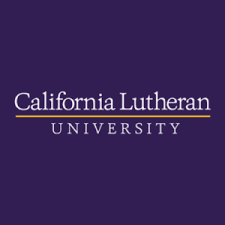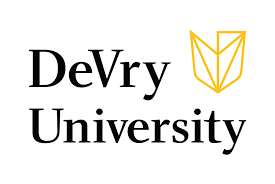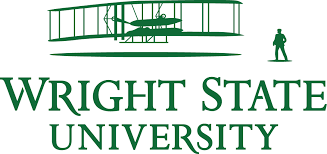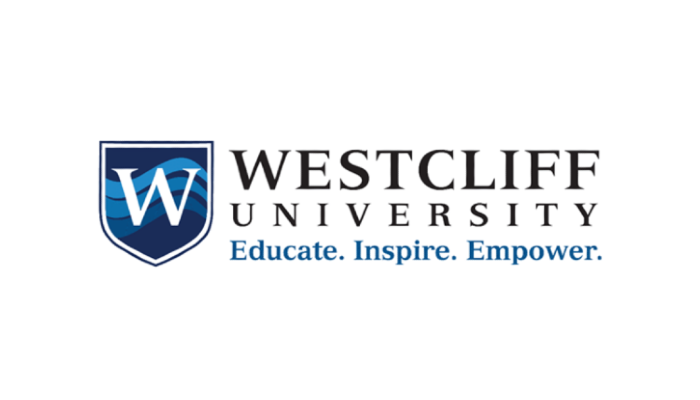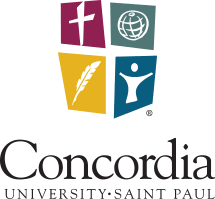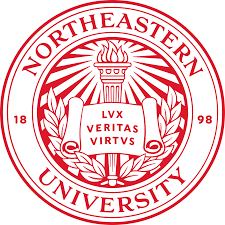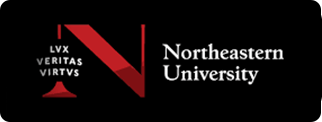University of Massachusetts Dartmouth
Dartmouth
- Accomodation
- Services & Facilities
About University of Massachusetts Dartmouth
While many of us today recognize UMass Dartmouth as part of Massachusetts’s state university system located in the SouthCoast, our history begins in 1895, in the thriving mill cities of New Bedford and Fall River. There, 125 years ago, UMassD’s tradition of educating students for successful careers and adapting to the ever-changing needs of the future of work originated.
In the 1800s, the textile industry was booming, particularly in Fall River and New Bedford. In order to create a local skilled labor pool of designers, textile chemists, and mill managers, mill owners petitioned the legislature to open state-funded textile schools. Chapter 47 of the Acts of 1895 enabled the mayor of any city in the Commonwealth with 450,000 or more spindles in operation to file for incorporation of a textile school. Three were schools were chartered: in Fall River, New Bedford, and Lowell.
Our predecessor institutions New Bedford Textile School and Bradford Durfee Textile School created a curriculum that served the needs of the textile industry. Three-year diplomas were granted in general textile manufacturing, textiles design, chemistry, and knit goods manufacturing, as well as a two-year certificate in textile technology. Evening classes allowed mill workers to expand their skills and knowledge. During the 1920s and 1930s the curriculum at the New Bedford Textile School expanded to include knitting technology, textile chemistry, dyeing and finishing, and fashion and textile design. Changes to the textile industry introduced courses in economics and merchandising in the 1940s.
The decline of the New England textile industry and the end of World War II forced the schools to explore new options and forge new identities. To take advantage of the GI Bill, they requested permission to grant four-year degrees and expanded the curriculum with engineering, chemistry, and business administration courses in response to a growing need for broader educational opportunities in southeastern Massachusetts. They became multipurpose institutions, preparing engineers, health care workers, teachers, and business leaders for the workforce, and were now known as New Bedford Institute of Technology and Bradford Durfee Technical Institute.
University of Massachusetts Dartmouth Accomodation
Living On Campus
More than 75% of incoming students live on campus. UMass Dartmouth offers residence halls for first-year and sophomore students, and apartments and townhouses for upper-level students. Learn more about life on campus and housing options.
- Engagement Communities
- First Year Residence Halls
- Sophomore Residence Halls
- Upper Class Apartments
- Upper Class Townhouses
- What to bring
On-campus convenience
- Dine on campus
- Corsairs Athetics & Fitness
- Residential network
Off-Campus Housing:
The purpose of the off-campus housing program is to provide UMass Dartmouth students, faculty, and staff a searchable listing of available off-campus housing in the greater UMass Dartmouth area. As a result, the program also offers local landlords the opportunity to list available property rentals.
University of Massachusetts Dartmouth Services & Facilities
The university houses a police department, alongwith health services, counseling, and care networks. Student employment options, parking and dining are also available at the campus. With involvement in activities, organizations and leadership programs, student experience at the campus gets diversified; whereas athletics and recreational facilities provide them with a chance to go beyond academics in a different way.
The career counsellor will assist students with preparing resumes and cover letters, as well as determining the best career path, conducting a job search, and other tasks. Make the most of networking opportunities and prepare for interviews. Gain real-world experience, earn credits, and improve your job prospects.
Fact & Figures
1895
Year of Establishment
8500
Total Students
Programs
View All
University of Massachusetts Dartmouth Undergraduate Program
View All
Business & Management
Bachelor of Science, Major in Accounting
The demand for accountants is growing since industries of all sizes and types need accountants.
The Charlton College of Business prepares accounting students with the essential financial knowledge and practical skills necessary to become problem solvers and decision makers. Because accounting is an information system, we emphasize information technology skills, including the use of accounting, spreadsheet and database applications as well as the use of technology for accounting and tax research.
There are four major career paths in accounting:
- Public accountant
- Management accountant
- Government accountant
- Auditor
You'll prepare for a successful career in a public accounting firm, a private corporation, or the nonprofit sector.
An accounting degree from CCB will help you to prepare for the CPA, CMA, CFE (Certified Fraud Examination), and other professional accounting certifications.
48 month
Duration
$ 30673
Tuition
Creative Arts & Design
Bachelor of Fine Arts, Major in Animation and Game Art
Massachusetts is one of the world's hubs for digital technology. UMass Dartmouth's animation and game arts program integrates digital art, design, and technology to advance the quality of digital communication and create a more understandable world.
You'll concentrate on digital animation and interactive multimedia while exploring 2- and 3-dimensional design, web design, and virtual reality. As you explore the potential of various digital media technologies, you'll engage in consistent, hands-on experimentation, working with faculty members who have considerable expertise in the field.
Your BFA in Art + Design: Animation + Game Art will prepare you to meet the design and communications challenges of the 21st century with careers in areas such as art direction, advertising, animation, broadcasting, creative direction, education, environmental design, game design, interface design, multimedia, scientific visualization, software application design, special effects, video editing, virtual reality and web design.
The BFA is a professional degree with concentrated areas of specialization, so you will take more art courses than you would in a BA program. At UMass Dartmouth, you also have the advantages of a university education where you can diversify your studies and expand your career opportunities.
48 month
Duration
$ 30673
Tuition
Social Sciences
Bachelor of Arts, Major in Sociology and Anthropology with Concentration in Anthropology
The Sociology and Anthropology Department offers a BA degree in Sociology and Anthropology with a concentration in Anthropology: the study of the role culture and power play in the world around us.
Anthropology emphasizes a comparative, cross cultural approach to the study of humankind, and the need to analyze culture and power in a global as well as local context. This program emphasizes the development of a holistic perspective and offers the possibility of studying communities and cultures in the US as well as in other societies around the world. The faculty has expertise in Africa, Europe, Latin America and the Caribbean, indigenous cultures throughout the Americas, as well as in the US. Students graduating with the anthropology concentration may pursue advanced degrees in a wide range of fields, such as women’s studies, anthropology, social work and education. They will also be prepared for jobs in fields that require understanding of cultural difference and social inequality, such as teaching and educational policy, social services, museum and historical preservation, government and public service, environmental assessment, urban planning and development, medical and public health, and business.
48 month
Duration
$ 30673
Tuition
Arts & Humanities
Bachelor of Fine Arts, Major in Art Education
Centered on studio practice, UMass Dartmouth's BFA in Art Education is a professional degree that will prepare you for elementary or secondary school teaching and for careers in other learning environments.
The BFA is a professional degree with concentrated areas of specialization, so you will take more art courses than you would in a BA program. At UMass Dartmouth, you also have the advantages of a university education where you can diversify your studies and expand your career opportunities.
The BFA is a professional degree that prepares students for licensure in elementary or secondary school teaching or for work in other learning environments and it is founded on studio practice. Students must complete a concentration in one of the studio areas in the College of Visual and Performing Arts.
Teaching licensure students become Art Education Teacher Candidates after passing the Communication and Literacy Skills portion of the Massachusetts Test of Educator Licensure (MTEL). Teaching licensure students become Art Education Pre-Service Candidates only after passing the entire MTEL, which includes the Visual Arts portion, before the first semester of their senior year, a prerequisite for entrance to the student teaching practicum. Depending upon the level of licensure sought, in consultation with the Art Education faculty advisor, and prior to class registration each semester, the appropriate Art Education courses must be selected and passed. Students must achieve a minimum GPA of 2.75 and obtain a positive recommendation from the chairperson before permission is granted to the student for entrance in his/her student teaching (Practicum). Student teaching requires a commitment of 400 total hours, earning full-time (12 credits) status. During the pre-practicum field experience, UMD pre-service teachers observe and assist in teaching students at their selected grade level (PreK-8 or 5-12) in public schools. Students must acquire a total of seventy-five hours outside of class during their pre-practicum field work, plus 20 hours observations in Sheltered English Immersion (SEI).
48 month
Duration
$ 30673
Tuition
Arts & Humanities
Bachelor of Arts, Major in Art history
Art history is the study of visual artifacts that express the values of cultures and societies. As an art history major at UMass Dartmouth, you'll learn to recognize, analyze, and interpret works of art from around the globe and across the centuries.
As you explore art, architecture, and the culture of history, you will develop your analytical, communication, critical thinking, research, and visual skills—skills that are applicable in a wide range of career paths.
Your studies in art history will prepare you for professional options in areas such as appraisal, arts administration, conservation, corporate arts management, education, preservation, publishing, research, and writing—and for positions in archives, galleries, libraries, and museums. You will also be ready for graduate study in art history and related fields.
Students with a degree in Art History will be able to:
- Demonstrate the critical thinking and analytical skills necessary to engage with an increasingly visual culture
- Apply the concepts, terminology and theoretical perspectives of art history, visual studies and film and media studies to a diverse set of visual artifacts
- Articulate the relationship between visual artifacts and their stylistic and cultural contexts
- Design and implement exhibitions using contemporary curatorial theories and methods
- Apply knowledge in the broader community through meaningful partnerships
- Formulate and pursue research questions using scholarly methods and sources
- Form cogent, well-researched arguments in written and verbal form
48 month
Duration
$ 30673
Tuition
Facilities
Academic Counseling
Accomodation (On Campus)
Campus Security
Campus Shuttle
Career Support
Day Care Centers
Financial Assistance
Food & Dining Sevices
More
University of Massachusetts Dartmouth Admission Requirements
Common criteria for everyone to apply to the University of Massachusetts Dartmouth are:
- The student should be 18 years of age.
- The student must have taken PTE, TOEFL, IELTS, or an equivalent English language proficiency exam.
- The applicant is required to submit their original transcripts from all the academic institutions they have attended (the transcripts must be translated, if the originals are not in English).
|
Criteria |
Requirement |
|
Minimum Age |
18 years |
|
English Language Proficiency Test |
IELTS /PTE / TOEFL |
|
Documents Required |
Class 10th and 12th Mark sheets and/or transcripts, Passport |
|
Exams Accepted |
GRE, GMAT |
Specific requirements may vary for different programs and campuses at the University of Massachusetts Dartmouth.

Get superfast admissions at top University of Massachusetts Dartmouth institutes in 2024
Benefits of choosing
➤Admission’s guaranteed at Top institutes across the world.
➤Enjoy exclusive application fee waiver’s with Edmissions.
➤Unlimited FREE Counselling sessions with Edmission’s
Experts
➤Get Tips from industry veterans to crack the IELTS exam in 1
week.
➤Assistance with scholarships, loans, forex, student accommodation and visa guidance.
Lets get your queries resolved!
Got a question? Ask and discuss with 100,000+ study abroad
aspirants and experts
Simran Kaur
What assistance is available if I am having academic difficulties? What tutoring services are available.
1 Like
2 Comment
Sophie Burner
Academic Resource Centers offer peer tutoring, study groups, small group review sessions, assistance with writing papers, classes on study skills, and workshops on academic issues. Faculty and staff are assigned as tutors.
Simran Kaur
Thank you!!
Suman Kaur
What is the cost of attending the University of Massachusetts Dartmouth?
1 Like
1 Comment
Lovely Singh
All international applicants are expected to have a minimum of 51,253 USD to cover their tuition, books, health insurance and other costs.
University of Massachusetts Dartmouth, USA - Reviews(25)
4.6/5
Faculty
Facility
Fabric
Future
Finance
What Alumni is saying
Kalen Lim
MFA Photography,, 2018
Merit-based scholarships
Roger Williams University awards more than $59 million in merit-based scholarships each year. The University offers merit-based aid to all new students, which will be considered during the application process.
Jim Powel
MFA Photography,, 2018
Financial aid options
The College's various scholarships, awards, and financial aid options are a reflection of the generosity of alumni, families, and friends.
Anshu Bhandari
MFA Photography,, 2018
On-campus jobs available
On-campus students can find a job in academics, administration, athletics, the library, maintenance, public safety, student affairs, technology and many more areas
Experiences(3)
Popular Colleges in USA
Top Study Abroad Exams
Explore Colleges and Courses in USA
- Arts & Humanities in usa
- Business & Management in usa
- Natural Sciences & Mathematics in usa
- Engineering & Technology in usa
- Computer Science & IT in usa
- Health Sciences, Nursing and Emergency Services in usa
- Social Sciences in usa
- Creative Arts & Design in usa
- Hospitality, Tourism, Wellness Leisure & Sports in usa
- Environmental Studies & Earth Sciences in usa
Latest Blog Posts
Trending Blog Posts


